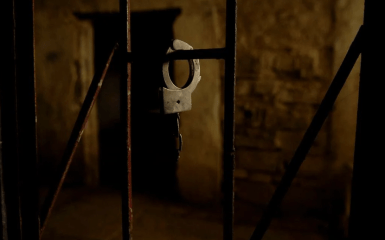Russia regularly subjects Ukrainian prisoners of war to torture and ill-treatment at all stages of captivity.
Points of attention
- Ukrainian prisoners of war at all stages of captivity in Russia are subject to systematic torture and ill-treatment, as confirmed by the UN report.
- Torture includes beatings, electric shocks, sexual assault, prolonged restraints, and other horrific forms of physical and psychological abuse.
- Ukraine provides access for experts and human rights organizations to study the conditions of detention of Ukrainian prisoners of war, while Russia impedes access to such facilities.
- Over the past 18 months, 104 Russian soldiers in Ukrainian camps have also complained of torture during the initial stages of captivity.
- The Kremlin's criminal strategy consists in torture and ill-treatment of Ukrainian prisoners of war at all stages of their detention.
Ukrainian prisoners of war are subjected to systematic torture at all stages of captivity in the Russian Federation
According to the OHCHR report, the Russians systematically torture and ill-treat Ukrainian prisoners of war.
Of the 174 POWs interviewed, 169 testified that abuse was common during interrogations, admissions to detention facilities, and daily internment procedures. These testimonies are confirmed by other sources.
Torture includes beatings, electric shocks, sexual assault, strangulation, prolonged restraints, forced physical exercises, sleep deprivation, mock executions, and threats.
In particular, in Kherson, the occupiers repeatedly tortured the detained man, using beatings, strangulation, water torture, electric shocks, including genitals, and threatened castration. He was also raped with a metal object while applying electric current to his anus and genitals.
The UN notes that in many cases, representatives of various state structures of the Russian Federation are involved in torture, which indicates coordination between them. Also, the guards in the places of detention knew about the ill-treatment and had the opportunity to stop it.
The report also highlights public calls by Russian officials for the brutal treatment and execution of Ukrainian prisoners of war.
UN experts still cannot get to the places of detention of prisoners in the Russian Federation and its occupied territories. At the same time, Ukraine provides such access. The authors of the report were able to interview 205 Russian soldiers in Ukrainian camps over the past 18 months.
According to the UN, 104 of them also complained of torture — almost all cases involved beatings during the initial stages of captivity or during transit to official camps, where detention conditions "generally met international standards."
The Prosecutor General named the number of victims of Russian captivity
More than 2,200 Ukrainian defenders have been recognized as victims in the proceedings regarding their stay in captivity. At least 25 facilities where Ukrainian prisoners of war are held have been established in 15 regions of Russia.
Videos of abuse of Ukrainian prisoners, which are distributed on the Internet, are only part of the criminal strategy of the Kremlin. Everyone who was in Russian captivity was subjected to brutal treatment or torture by the occupiers.
He noted that prisoners of war are tortured and kept in inhumane conditions.
Even for communicating in the Ukrainian language, they are subjected to beatings and other forms of physical violence.
There are cases when Ukrainian prisoners who have returned from captivity say that they witnessed the murders of other prisoners.



